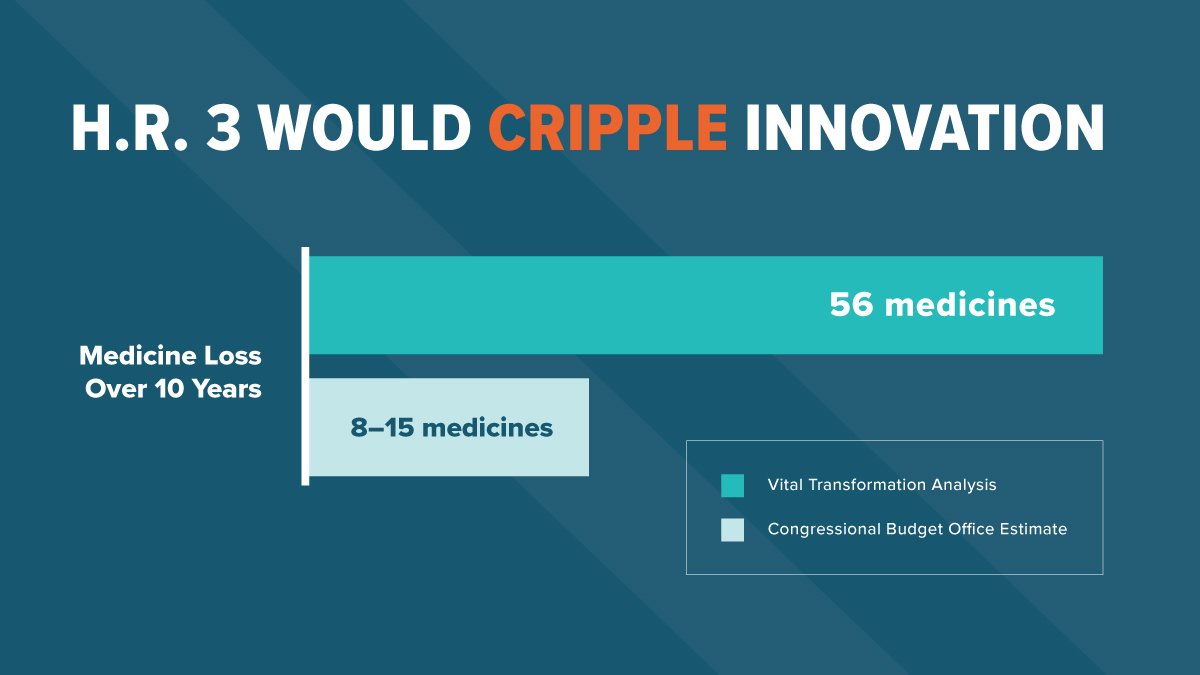A new analysis from economic consulting firm Vital Transformation shows that Speaker Nancy Pelosi’s drug pricing plan, H.R.3, could result in at least 56 fewer innovative medicines for patients over 10 years. The study examined the impact of foreign reference pricing provisions in H.R.3 on treatments and cures from small, emerging biotech companies that rely on venture capital to finance their research and development (R&D).

According to the analysis, H.R. 3 would cut revenues by more than half for companies with affected medicines, leading to a nearly 90% reduction in new medicines developed by small U.S. biotech companies. This would have a disproportionate effect on industry work with small biotech companies, forcing hard choices and moving capital away from riskier investments where the science is tougher and economic returns are less certain.
The Congressional Budget Office (CBO) has estimated that for the entire biopharmaceutical ecosystem, only 8-15 medicines will be stopped from coming to market over the next 10 years. However, this study shows that under H.R.3 small, emerging biotech companies alone would bring 56 fewer innovative new medicines to market over the next 10 years; down from 64 during the previous decade and four to seven times CBO’s estimate.
After factoring in the full ecosystem of biopharmaceutical innovation, the real impact on patients gaining access to new medicines will be significantly worse if H.R.3 is enacted. Some of the sickest patients would feel the greatest impact. Targeted therapies for diseases like Alzheimer’s, Parkinson’s and ALS, as well as rare diseases, where the science is most challenging, would likely be most affected by the bill’s drastic change to economic incentives.
There has been tremendous progress in the fight against disease, but there is still a long way to go. Instead of blowing up the entire health care system and giving up the search for future innovation, policymakers should focus on practical reforms such as capping out-of-pocket costs, making patients’ monthly costs more predictable, sharing negotiated savings with patients, enhancing competition from generic medicines, and promoting value-based contracts.
The analysis is an expanded version of the study Vital Transformation recently completed examining the impact of H.R. 3 on innovation in California. The analysis was commissioned by PhRMA, the Biotechnology Innovation Organization (BIO) and Council of State Bioscience Associations (CSBA).
View the press release here.
Learn more about Speaker Pelosi’s drug pricing plan here.
Take action and tell Congress to stop Speaker Pelosi’s plan here.




